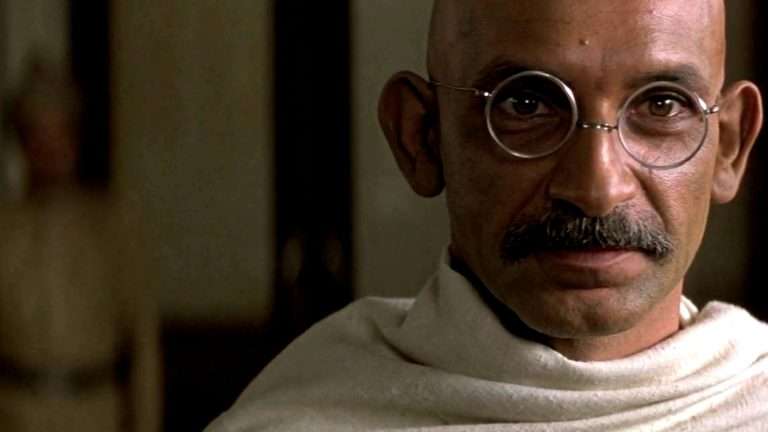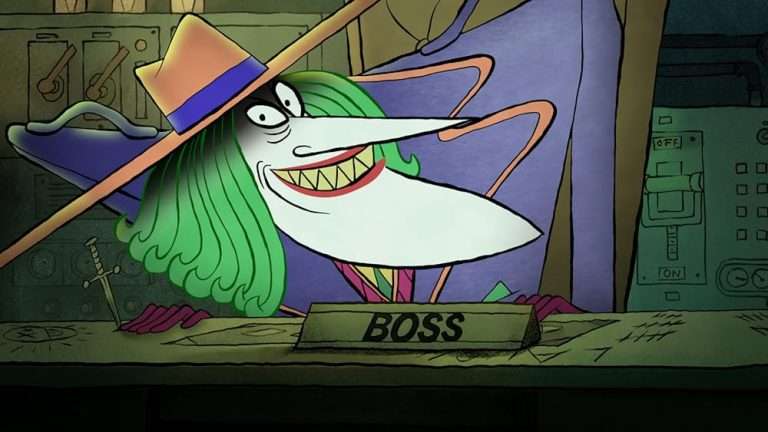“When are you lot going to grow up?” asks the father of one of two middle-aged wanderers skipping with jovial pathos from one bottomless drink to the next in Francesco Sossai’s “The Last One for the Road” (Original title: “Le città di pianura,” 2025); “We’re too old to grow up,” responds one of the subjects of his not-so-latent disdain. A succinct enough distillation of this breezy road movie’s ethos, this exchange more or less covers the bases for any number of films about physical growth vastly outpacing its emotional equivalent.
In part, this is the larger problem hanging across the totality of Sossai’s plains-bound expedition through Italy’s vast Venetian plains. “The Last One for the Road” hardly offers much outside the commonplace bond between youth seeking guidance and the elders only equipped to provide it through their unorthodox (read: even more childish) means. At the same time, in the pantheon of films touting ignorance as its own kind of wisdom, there are certainly less candid destinations that could be reached on the road to nowhere.
This much comes to be clear enough to Guilio (“The Hand of God” breakout Filippo Scotti), a young architecture student so nondescript that his introduction resembles a twentysomething who wandered onto the film set following a group of extras without Sossai’s prior knowledge. Out celebrating the graduation of his incredibly obvious crush the night before his final review, his early night comes to be completely derailed by two equally wayward peers in much saggier bodies.
They are Carlobianchi (Sergio Romano) and Doriano (Pierpaolo Capovilla), who wander into town in search of a bar open for one last drink before they turn in and pick up an old friend from the airport. Of course, as we come to learn (and as they come to say outright), the quest for the last drink is never-ending, and the eventual pseudo-kidnapping of Guilio for a quest of unassuming debauchery will be defined by this endless quest for an end that never comes.

Like many an Italian film with its eyes turned to the countryside (or in this case, the closest thing that still has a highway stretching through it), “The Last One for the Road” boasts a crisply textured film grain that almost lets you count the beads of sweat dripping down these eccentric subjects’ eyebrows. The variety of subjects boasting that attention is far fewer than might be expected of a car-bound odyssey, but those front-and-center are given enough attention that their beer-breath virtually wafts through the screen.
Surprisingly, Sossai and Adriano Candiago’s script doesn’t indulge in the typical frictions that occupy these road films. The reluctant passenger never blows his top at the antics of his hosts, nor do they come to any concrete reckoning with the futility of their lives. It’s a refreshing shift that allows Sossai to let the observations of these middle-aged men stumbling drunk into the home of one of their parents carry all the melancholy that you’d get from any number of pace-halting monologues.
Still, one would hope that Sossai might bring something more to the table to distinguish this film from its commitment to noncommittance. Little is offered to distinguish Carlobianchi from Doriano as characters, nor do their antics prove funny enough to be memorable or deceptively insightful enough in their own right to push Guilio (or the audience) towards any life-shifting epiphanies about stopping to smell the roses as they grow along the edges of the concrete.
If nothing else, there does come from that neutral middle-ground a charm to “The Last One for the Road,” as Francesco Sossai’s journey feels less like a shove towards a new chapter and more like a gentle nudge. Several times the film teases a definitive answer to this thing called life, and every time, Sossai brushes it off with the comedic nonchalance of a sage who knows there’s no such thing.


![mother! [2017]: Earth’s Bleeding Heart](https://79468c92.delivery.rocketcdn.me/wp-content/uploads/2018/01/mothercover.0-768x512.jpg)

![The Oak Room [2020]: ‘Fantasia’ Review – A film that uses storytelling as a currency](https://79468c92.delivery.rocketcdn.me/wp-content/uploads/2020/08/The-Oak-Room-Movie-Review-highonfilms-2-768x288.jpg)
![In Front Of Your Face [2021]: ‘Cannes’ Review – Hong’s latest is Slight in spirit but Deeply Intimate in Form](https://79468c92.delivery.rocketcdn.me/wp-content/uploads/2021/08/In-Front-of-Your-Face-2-768x405.jpg)
![Titane [2021] Review – A horrifically tender story about love, rebirth, violence and family](https://79468c92.delivery.rocketcdn.me/wp-content/uploads/2021/10/Titane-1-highonfilms-768x432.jpg)
